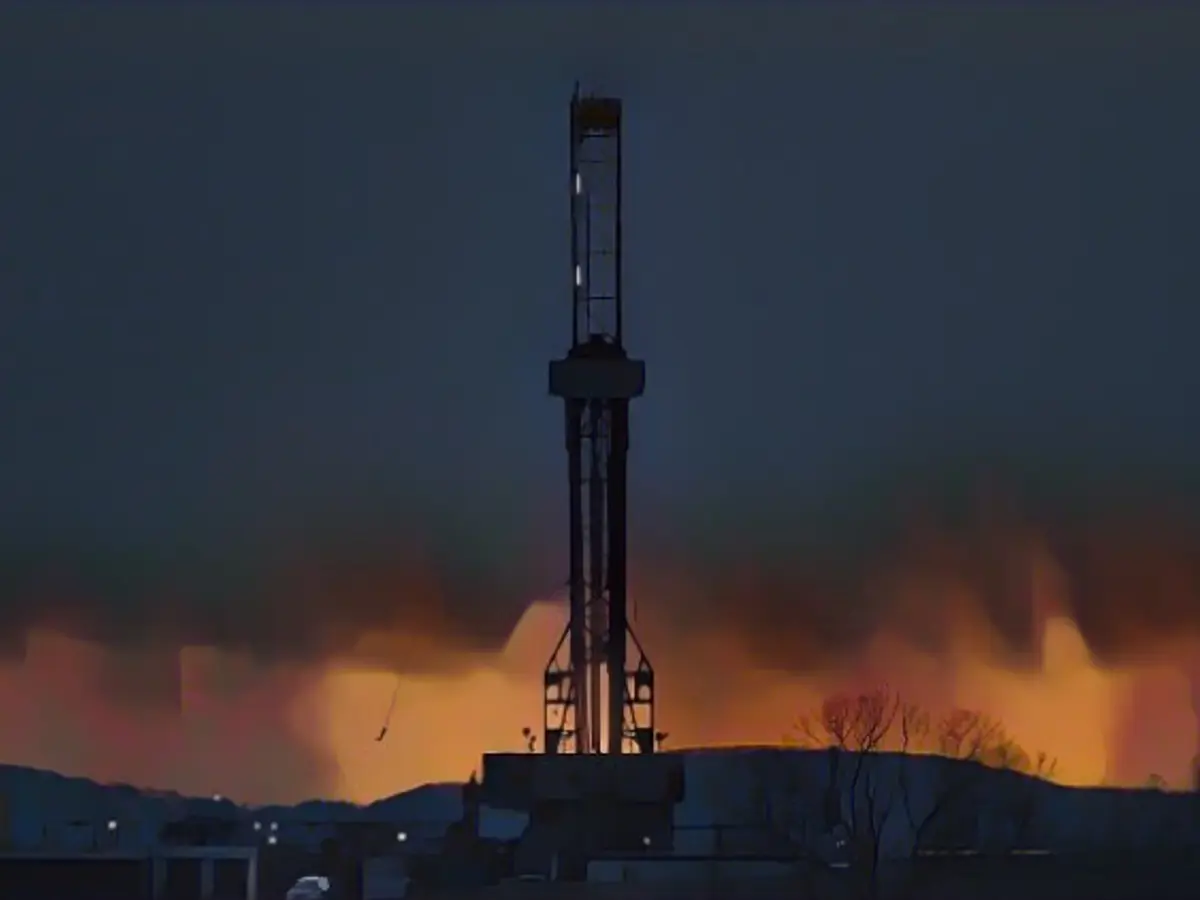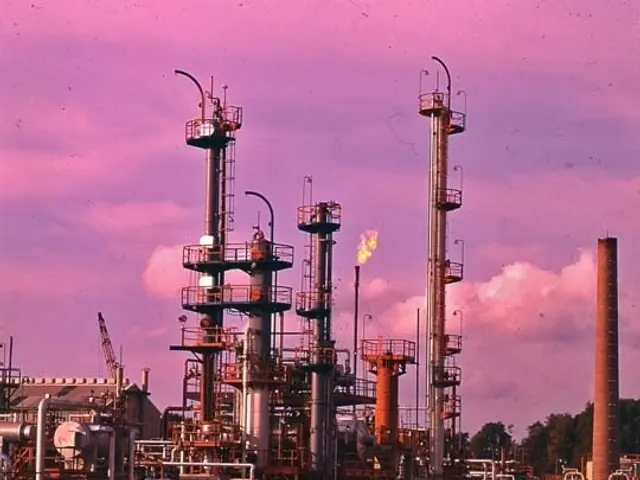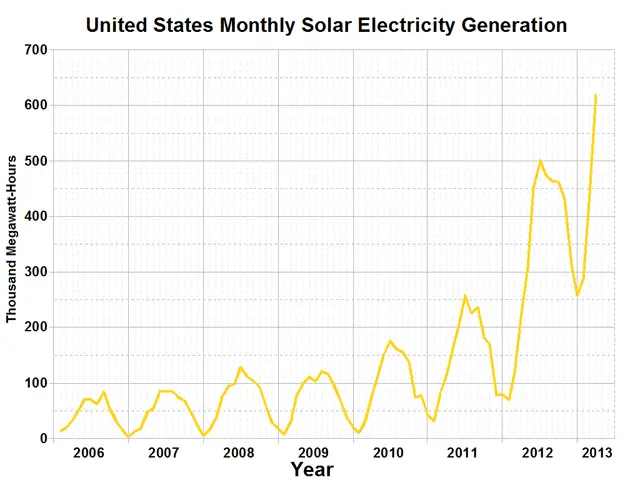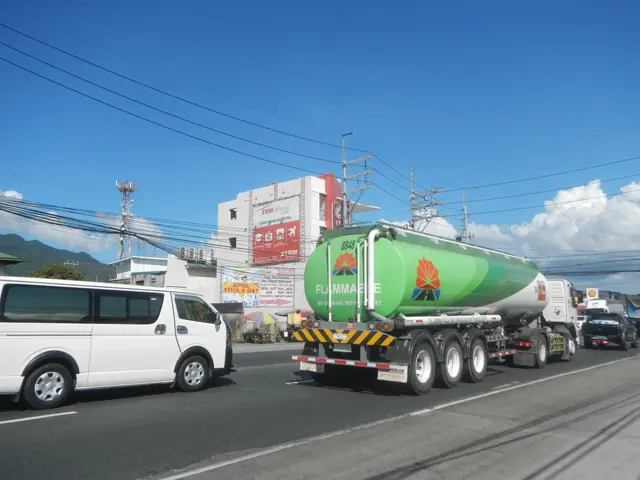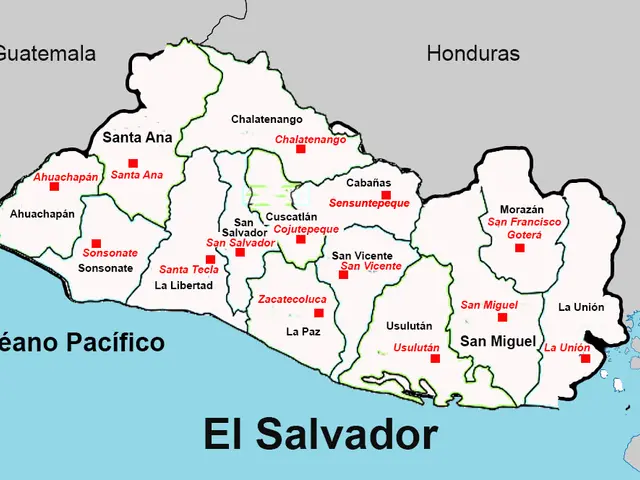Fracking's Role in German Energy Security: A Limited Prospect
In a recent statement, the Ifo Institute asserted that fracking's potential for bolstering German energy security is minimal. According to Karen Pittel, the Head of Ifo's Energy, Climate, and Resources Center, estimates suggest that fracking could address six to twelve percent of Germany's gas consumption. However, to achieve this, the current ban on fracking would need to be lifted, and substantial investment would be required in the German fracking industry.
Pittel noted that the timeline for achieving this goal is extensive, spanning five to nine years from planning to initial extraction of natural gas. Yet, given the urgent need to meet climate neutrality targets by 2045, a substantial decline in natural gas demand is anticipated from 2030 onward. This trend makes it less financially viable to invest in natural gas production from an economic perspective, as Pittel explained, using data from an expert commission that suggests extraction from non-conventional reservoirs typically lasts 20 to 30 years due to the high development costs involved.
Moreover, the cost of operating fracking in Germany is estimated to range between 26 and 43 euros per megawatt hour. This price threshold is significant, and for the industry to remain competitive, the actual cost of natural gas in 2030 must exceed the upper end of current forecasts, which range between 18 and 59 euros per megawatt hour. Pittel highlighted the lack of long-term planning security in the German fracking industry, creating further challenges for potential investors.
The fracking process involves pumping a fluid under high pressure to create cracks, allowing natural gas to escape from the rock layer. Estimates indicate that roughly 320 to 2,030 billion cubic meters of technically recoverable shale gas exist in Germany, with the largest reserves located along the border between Lower Saxony and North Rhine-Westphalia.
Despite its potential to address six to twelve percent of German gas consumption, as suggested by industry estimates, the Ifo Institute emphasizes the limited role of fracking in energy security due to the prerequisite of lifting the ban and investing in the industry. Pittel also highlighted the challenges of achieving climate neutrality targets by 2045 and how this could make investing in natural gas production economically difficult.
Source:
Additional Insights
Several economic and environmental factors limit the potential of fracking for improving Germany's energy security and meeting its climate neutrality targets by 2045:
Economic Factors
- High Competitive Pressure: Fracking's high upfront costs and potential long-term liabilities often make it less competitive when compared to renewable energy sources.
- Energy and Cost Challenges: The elevated energy costs associated with fracking, including extraction, processing and distribution, can lead to higher consumer bills, which may impact affordability.
- Export Focus: Germany's shift towards becoming a net exporter of liquified natural gas (LNG) suggests a preference for more abundant and less polluting sources of energy, such as U.S. natural gas, rather than investing in domestic fracking.
Environmental Factors
- Pollution Concerns: Hydraulic fracturing is known as a highly polluting activity, with detrimental environmental and health effects such as groundwater contamination, air pollution, and seismic activity.
- Lack of Environmental Assessment: The expansion of fracking projects, as seen in Hungary, has been criticized for lacking a comprehensive environmental impact assessment, including evaluating cumulative impacts from wells and carbon dioxide and methane emissions.
- Methane Emissions: Imported LNG fracking gas causes significantly higher methane emissions than conventional pipeline gas, necessitating careful selection of low-emission suppliers to meet environmental targets.
- Public Opposition: Public opposition to fracking in various European countries, including Germany, due to concerns about water contamination, land use, and public health has resulted in bans or tight regulations on the practice.
Climate Neutrality Targets
- Incompatibility with Climate Goals: Fracking contributes to greenhouse gas emissions and interferes with the transition to renewable energy sources, making it challenging to align with Germany's ambitious climate neutrality targets by 2045.
- Efficiency and Productivity: Germany has made considerable strides in energy efficiency, leading to increased productivity and economic progress, further reinforcing the need and viability for focusing on renewable energy sources for achieving climate neutrality.
These factors collectively underscore the challenges and limitations of relying on fracking to boost Germany's energy security and meeting its climate neutrality objectives by 2045.
